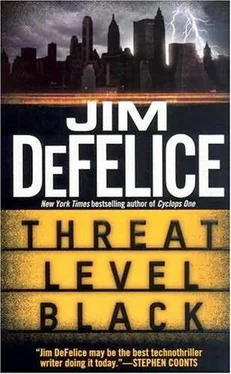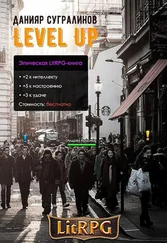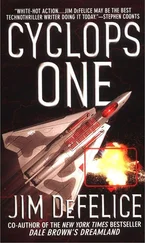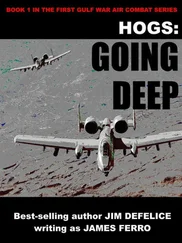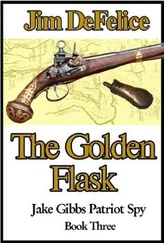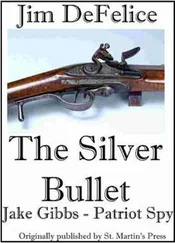“You had to,” said Howe.
“No. It was a mistake, what I’m talking about. It’s not in the, uh, reports. It was a kid. I’d take it back but I can’t.” McIntyre took another sip of his soda. “You can’t change things.”
Howe saw no obvious signs of distress. If anything, the man sitting in the booth across from him seemed more analytical, more reasoned, than the one he’d known as a member of the NSC.
“You think you could hold down a job at NADT?” Howe asked.
“I don’t know. I think so.”
Howe looked up as the waitress arrived. He hadn’t planned on offering McIntyre a position; he’d thought yesterday after talking to him that he wouldn’t because of McIntyre’s psychological stress or problems or whatever. But if Howe was going to take the job at NADT, he needed somebody exactly like him to help.
So he wasn’t bailing out, then.
“What exactly are you thinking?” asked McIntyre.
Howe told him that he was looking for someone who would have a pretty high rank, preferably a vice president, who could deal with the political end of things.
“Me?”
“Is it the sort of thing you’d be interested in?” Howe asked.
“Well…”
McIntyre said nothing else for a while. Their sandwiches came; they ate in silence.
“I think the situation you were in, it was a tremendous jolt,” said Howe. “I don’t blame you for getting sick. I might have myself.”
“No.” McIntyre shook his head gently. “No. You and I are different. It’s okay, you can say it.”
“I don’t know,” said Howe honestly. “If uh, if I had to kill someone face-to-face-I don’t know.”
“Well, I didn’t really have to kill him, did I? Because I screwed up.”
Neither man spoke for several minutes.
“I think you can do the job,” said Howe finally. “I think you’d do well.”
“I might be able to do it, for you,” said McIntyre. “For you. Because there would be a lot of people with their knives out. A lot.”
“Like the CIA?” Howe explained that his clearance had been mysteriously pulled.
“Interesting,” said McIntyre. “But…it might be just routine. Depends on who’s running the investigation. Or it could be an excuse.”
“How do you tell the difference?”
McIntyre smiled. “You can’t.”
“What’s the best way to get it restored?”
“Well, if the professor says he’s on it, he is,” said McIntyre.
“He doesn’t play politics?”
“Oh, he plays politics. He plays pretty damn hard. But if he says something like that, he means it. Besides, he sees you as one of his people.”
“He does?”
“Sure. And there’s a possibility this was aimed at him. All sorts of games go on, Colonel. You wouldn’t believe.”
“That’s why I need somebody like yourself. You. Assuming I get the job.”
“Blitz wants you. That should be enough. His stock is pretty high right now. And he’s always been tight with the President. Have you talked about filling out the board?”
“No.”
“There are a number of vacancies. You’d want some input.”
“I haven’t a clue who should be on it.”
“People who like you.” McIntyre laughed, but Howe could tell he was being serious.
“How do I get them on the board?”
“You do need me, don’t you?” A little bit of the old McIntyre peeked through, a broad grin appearing on his face. Then the humbler version returned, his eyes cast toward the table. “I’ll talk to some people for you and get the lay of the land.”
“I’m taking you at your word that it wasn’t you,” Fisher told Jack Hunter as they surveyed the bombed-out hulk of the car.
“I’m glad you can laugh at a time like this,” his boss told him. “I’m glad you can laugh.”
“I ain’t laughing,” said Fisher.
The bomb had obliterated the car and shattered the windows of the diner. Two people inside had been cut by the glass, one severely. Fisher had lost his entire cup of coffee and crushed a half package of cigarettes. Otherwise he’d suffered only a few nicks and bruises.
“This is government property they destroyed,” said Hunter. “This really pisses me off.”
FBI agents and the local police were scouring the woods across the street and checking the surrounding area looking for evidence. Fisher theorized that someone had watched and waited for him to come out before pressing a remote control to detonate the bomb. Because of that, he couldn’t be one hundred percent sure that the attempt was related to Howe or even the case he was working on: Too many people with access to explosives hated his guts.
But it seemed sensible to him to assume that it was related to Howe, and that the retired colonel was the real target; under that scenario he was a kind of consolation prize. Maybe the person watching thought he had spotted the bomb and worried that it might yield clues about his identity. Or maybe they just like to see things go boom.
“Look at this damage,” Hunter practically moaned.
“Shame,” said Fisher. “Less and less diners to go around.”
The crime scene people had already set up shop, and now two in their white baggy suits asked Fisher and Hunter to move off to the side so they could finish taking their samples.
“At least we know the E-bomb’s real,” said Fisher.
“How do you figure that?”
“Has to be.”
“Don’t give me that shit, Fisher. How do you figure that? Where’s your proof? This?”
“I have to prove one and one is two?”
“By your math, one and one is a hundred and twenty-seven.”
Fisher ignored the obvious reference to his expense chits.
“We have to get some security people on Howe,” he told Hunter. He’d already tried calling the colonel’s cell phone but it was apparently turned off.
“I’ll talk to the White House about it,” said Hunter.
“We don’t have anybody we can send?”
“Jeez, Fisher, what the hell do you think? I have an army of people working for me?”
“Better do it quick,” said Fisher. “If they were willing to blow me up, they must already have an idea where he is, or at least where he’ll go.”
Howe started to drive back to his motel after lunch with McIntyre, but then realized that he was near the house Alice Kauss had called her dream home the night before. Recalling the conversation-and mostly recalling her-he turned down the street that led to it, turning to the right and then into the cul-de-sac where the house sat off to the side. He stopped the car and looked at it.
It wasn’t a spectacular house. Oh, it was big-much bigger than anything he’d ever lived in-but it wasn’t ostentatious: no elaborate drive, none of those really fancy pillars at the front, no copper on the roof. It was nice, definitely; the little porch at the front was just big enough for a small bench, a good place to read the paper on a Sunday morning, drinking a cup of coffee.
Not a bad life.
Over a million bucks, though? Sheeeesh.
Could he afford a place like this if he took the job?
Undoubtedly, but why would he want it? Alice had told him it was about 3,200 square feet. He’d be lost.
He drove around the cul-de-sac at the end of the block, then up and through the rest of the subdivision. Howe had grown up in a rural area, next to a farm. The word subdivision in his youth had a tinge to it; usually it meant a farmer had been forced to sell off his land to make ends meet. Things were changing now. The family farm was a thing of the past, even where he’d grown up. Soon it would all be subdivisions.
So, living in a condominium was better?
Howe hadn’t heard back from Blitz or his aide about his security clearance, and figured that he might not for a few days. His best bet, he thought, was to get his personal affairs straightened out: find a place to stay, then go back home for a few days, visit with his relatives and friends. Once the job got going, who knew when he’d get a chance to get away again?
Читать дальше
